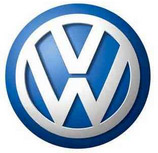 Volkswagen has some explaining to do. The Obama administration on Sept. 18 directed Volkswagen to recall nearly half a million cars from the road, saying the German automaker used software intentionally designed to circumvent environmental standards for reducing smog. That’s according to the New York Times.
Volkswagen has some explaining to do. The Obama administration on Sept. 18 directed Volkswagen to recall nearly half a million cars from the road, saying the German automaker used software intentionally designed to circumvent environmental standards for reducing smog. That’s according to the New York Times.
The Environmental Protection Agency issued the company a notice of violation and accused the company of breaking the law by installing software known as a “defeat device” in 4-cylinder Volkswagen and Audi vehicles from model years 2009-15, the Times said.
“Using a defeat device in cars to evade clean air standards is illegal and a threat to public health,” said Cynthia Giles, the E.P.A.’s assistant administrator for the Office of Enforcement and Compliance, was quoted in the Times. “Working closely with the California Air Resources Board, E.P.A. is committed to making sure that all automakers play by the same rules. E.P.A. will continue to investigate these very serious violations.”
The allegations cover roughly 482,000 diesel passenger cars sold in the United States since 2009.
As with any corporate crisis, the first few hours are the most crucial in responding to any allegations and, on that front, Volkswagen seems to be losing precious time.
A visit to the automaker’s website, Twitter handle and Facebook page found no mention of the recall request or an initial response.
If the specter of the General Motors worldwide recall of 2.6 million cars is any indication—blamed for at least 13 deaths—Volkswagen officials need to be aboveboard with federal authorities regarding the automaker’s use of software in its cars.
In a case like this, PR pros also have to play a key role in convincing C-level executives to divulge any and all information related to the accusations. It seldom helps your brand reputation if the company claims it’s released all relevant information pertaining to an investigation, only to have a bombshell drop afterward that makes the company look incompetent, or worse.


 There’s a fine line between newsjacking and taking advantage, aka ambulance chasing. Our job as PR professionals is to tread it carefully.
There’s a fine line between newsjacking and taking advantage, aka ambulance chasing. Our job as PR professionals is to tread it carefully. PR firms need to be mindful of ways their work product may be protected by the attorney-client privilege whenever working with a client’s internal legal team or its external legal counsel.
PR firms need to be mindful of ways their work product may be protected by the attorney-client privilege whenever working with a client’s internal legal team or its external legal counsel. Manuel Rocha, former US ambassador and intenational business advisor to LLYC, plans to plead guilty to charges that he was a secret agent for Cuba.
Manuel Rocha, former US ambassador and intenational business advisor to LLYC, plans to plead guilty to charges that he was a secret agent for Cuba. CEO mentoring is an often-overlooked aspect of why CEOs are able to make good decisions, and sometimes make bad ones—all of which intersects with the role and duties of a board.
CEO mentoring is an often-overlooked aspect of why CEOs are able to make good decisions, and sometimes make bad ones—all of which intersects with the role and duties of a board.  How organizations can anticipate, prepare and respond to crises in an increasingly complex world where a convergent landscape of global challenges, threats and risks seem to arrive at an unrelenting pace.
How organizations can anticipate, prepare and respond to crises in an increasingly complex world where a convergent landscape of global challenges, threats and risks seem to arrive at an unrelenting pace.


 Have a comment? Send it to
Have a comment? Send it to 
No comments have been submitted for this story yet.